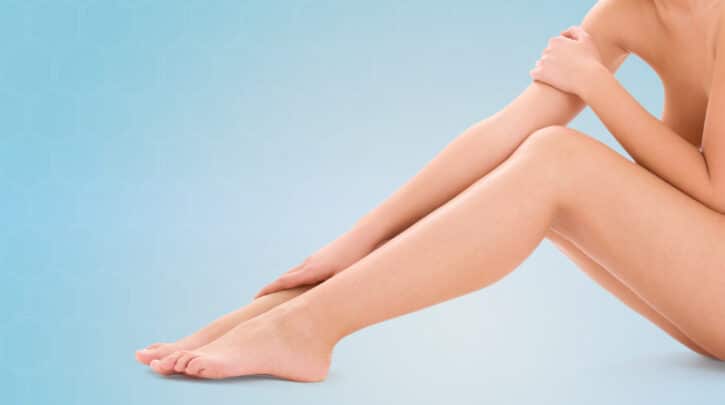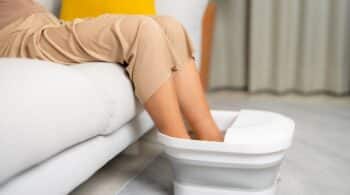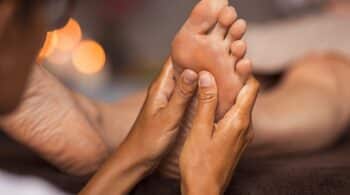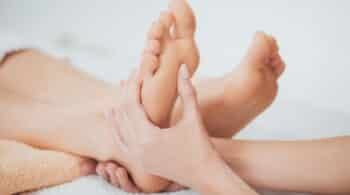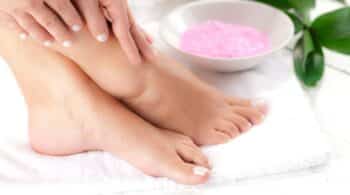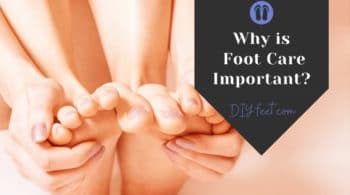Find out how to keep your feet healthy all year long. Your feet play a crucial role in your daily activities. Neglecting foot health can lead to various problems such as foot odor, calluses, corns, and discomfort. By following a few simple strategies, you can keep your feet healthy and prevent these issues.
Overview of foot health
Maintaining good foot hygiene is the first step towards healthy feet. Wash your feet daily with warm water and mild soap, ensuring that they are completely dry afterwards. Changing your socks and shoes at least once a day is also important. Opt for shoes that allow your feet to breathe, as this helps prevent excessive sweating and foot odor.
Importance of taking care of your feet
Proper foot care helps prevent foot odor, calluses, and corns. Foot odor often occurs due to excessive sweating and bacterial growth. Wearing moisture-wicking socks and using antibacterial soap can help control foot odor. Calluses and corns are thickened, hard patches of skin that can be painful. Avoiding tight shoes, applying too much pressure, and maintaining good foot hygiene can prevent their formation.
When to seek medical attention
If you experience persistent pain in your feet, it is important to see a doctor. They may recommend changes in footwear, padding, or even shaving off corns and calluses. Severe pain may require cortisone injections or surgery. Furthermore, if you have diabetes, it is crucial to consult a doctor instead of attempting to treat corns and calluses yourself.
Caring for your feet is vital for maintaining overall foot health. Follow these tips to keep your feet healthy and free from discomfort. Remember that prevention is key, so prioritize foot hygiene, choose appropriate footwear, and seek medical advice when needed. By taking these simple steps, you can ensure that your feet remain healthy and pain-free.
How to Keep Your Feet Healthy
In order to maintain healthy feet, it is important to be aware of common foot problems and take preventive measures. This informational post will provide you with useful tips to keep your feet healthy.
Corns and Calluses
Corns and calluses are thickened, hard patches of skin that can cause pain and discomfort. Corns typically form on the toes, while calluses develop on the bottom of the feet. To treat these conditions, you can use a pumice rock to gently rub the affected areas during bathing. It is also important to wear properly fitted shoes and avoid high heels on a daily basis.
Foot Odor
Excessive sweating on the feet, also known as hyperhidrosis, can lead to foot odor. To control foot odor, you should wear moisture-wicking socks and change them regularly throughout the day. Washing your feet daily with antibacterial soap and allowing them to completely dry is also crucial. Soaking your feet in black tea or vinegar can help eliminate odor-causing bacteria.
Preventing Corns and Calluses
To prevent the formation of corns and calluses, it is important to avoid excessive rubbing and pressure on the feet. This can be achieved by wearing properly fitted shoes and using gel pad inserts to reduce pressure. Additionally, practicing good foot hygiene by washing and drying your feet regularly can help prevent these conditions.
When to See a Doctor
If you experience severe pain or are unable to manage corns and calluses on your own, it is recommended to seek medical attention. Your doctor may suggest changing your shoes, using padding, or even performing corn or callus removal procedures. It is particularly important for individuals with diabetes to consult their doctor for proper treatment.
By implementing these simple strategies and being proactive in caring for your feet, you can maintain their health and prevent common foot problems. Remember to prioritize good foot hygiene, wear properly fitted shoes, and seek medical advice when necessary.
Sweaty Feet
Causes of sweaty feet
Excessive sweating of the feet, also known as hyperhidrosis, can be triggered by various factors such as stress, medication, hormonal changes, or even genetics. Individuals with hyperhidrosis tend to sweat more when it’s hot outside or during physical activities. Men are more commonly affected than women, and it is more prevalent among younger adults.
Problems caused by sweaty feet
Sweaty feet can lead to several issues, including foot odor and an increased risk of developing calluses and corns. The combination of sweat and bacteria in socks and shoes can create an unpleasant odor, causing discomfort and embarrassment. Moreover, the moisture from sweaty feet can cause excessive rubbing, resulting in the formation of calluses and corns.
Managing sweaty feet
To keep your feet dry and prevent complications, there are several steps you can take. Start by wearing moisture-wicking socks and shoes that allow your feet to breathe. Change your socks and shoes at least once per day, and consider rotating your athletic shoes to allow them to dry properly. Use antibacterial soap to wash your feet and ensure they are thoroughly dried. Additionally, you may try using nonmedicated powdered or baby powder to absorb sweat and keep your feet dry throughout the day.
When to seek medical help
If you experience severe foot odor or sweating that significantly impacts your daily life, it is advisable to consult a doctor. They may recommend various treatment options such as prescription roll-on antiperspirants, Botox injections, or iontophoresis, which temporarily plugs the sweat glands. In some cases, surgery may be considered. For individuals with diabetes, it is important to seek medical guidance before attempting any self-treatment for calluses or corns.
Remember, maintaining good foot hygiene, wearing properly fitted shoes, and addressing any foot issues promptly can help keep your feet healthy and comfortable.
Foot odor is a common issue that can be embarrassing and uncomfortable. The unpleasant smell is usually caused by a combination of factors, including sweat, bacteria, and shoes that do not allow the feet to breathe. Understanding the causes and finding ways to control foot odor is essential for maintaining healthy and fresh-smelling feet.
Causes of Foot Odor
Foot odor is primarily caused by the sweat and bacteria that accumulate on the feet throughout the day. When sweat mixes with bacteria in the socks and shoes, it produces a foul odor. Additionally, factors like stress, medication, and hormonal changes can also contribute to excessive sweating, further exacerbating foot odor.
Controlling Foot Odor
To effectively control foot odor, proper hygiene practices are essential. Start by washing your feet daily with warm water and mild soap, ensuring that you clean between your toes as well. After washing, thoroughly dry your feet to prevent moisture buildup, which can contribute to odor.
Tips for Maintaining Fresh-Smelling Feet
- Wear moisture-wicking socks to keep your feet dry and prevent excessive sweating.
- Use antibacterial soap to wash your feet, focusing on cleaning between your toes.
- Rotate your shoes and avoid wearing the same pair for consecutive days to allow them to dry properly.
- Choose shoes that fit properly and allow your feet to breathe, as tight shoes can increase sweating and odor.
- Consider using foot powders or nonmedicated baby powder to absorb sweat and reduce odor.
- Soak your feet in a mixture of black tea or vinegar and water to help eliminate odor-causing bacteria.
- If foot odor persists and affects your daily life, consult with your doctor for further evaluation and treatment options.
By following these tips and practicing good foot hygiene, you can effectively control foot odor and keep your feet fresh and healthy. Remember, proper care and attention to your feet are essential for overall foot health and well-being.
Proper Foot Hygiene
When it comes to maintaining healthy feet, proper foot hygiene is essential. Taking care of your feet can prevent common problems such as calluses, corns, and foot odor. By following a few simple steps, you can keep your feet in top condition.
Washing and Drying Your Feet
Start by washing your feet daily with warm water and mild soap. Be sure to pay attention to the spaces between your toes and thoroughly clean the entire foot. After washing, pat your feet dry with a towel. It’s important to make sure your feet are completely dry to avoid any moisture-related issues.
Using Antibacterial Products
To further maintain foot hygiene, it’s recommended to use antibacterial soap to wash your feet. This can help eliminate any bacteria that may contribute to foot odor or infections. Additionally, consider using antibacterial cream or powder to keep your feet fresh and free from harmful bacteria.
Choosing Breathable Footwear
Wearing shoes that allow your feet to breathe is crucial for foot health. Avoid tight, ill-fitting shoes that can cause excessive rubbing and pressure on your feet, leading to the formation of calluses and corns. Opt for shoes made from breathable materials, such as leather or mesh, to promote proper airflow and reduce sweating.
Changing Socks Regularly
To combat foot odor and maintain cleanliness, it’s important to change your socks regularly. Moisture-wicking socks are an excellent choice as they help keep your feet dry and prevent the growth of odor-causing bacteria. If you have particularly sweaty feet, consider changing your socks throughout the day to ensure freshness.
By following these guidelines for proper foot hygiene, you can keep your feet healthy and prevent common foot problems. Remember to see a doctor if you experience persistent pain or severe issues with calluses or corns. Take care of your feet, and they will take care of you.
Foot Care for Specific Conditions
Diabetes and Foot Care
If you have diabetes, proper foot care is crucial. Diabetes can lead to nerve damage and poor blood circulation in your feet, making them more susceptible to infections and slow healing.
- To keep your feet healthy, it is important to check them daily for any cuts, sores, or blisters.
- Make sure to wash your feet with warm water and mild soap, and dry them thoroughly, including between the toes.
- Avoid using hot water or soaking your feet, as it can cause dryness and cracks.
- Moisturize your feet with lotion, but avoid applying it between the toes.
- Trim your toenails straight across and avoid cutting them too short.
- Wear comfortable shoes that provide enough room for your toes and have good support.
- Regular visits to your healthcare provider for foot exams are also essential in managing your diabetes and preventing complications.
Foot Care for Athletes
As an athlete, taking care of your feet is vital for optimal performance and injury prevention. Proper footwear is key, so make sure to choose shoes that are well-fitted and appropriate for your specific sport or activity. Replace your athletic shoes regularly, as worn-out shoes can cause discomfort and increase the risk of injuries. Remember to warm up and stretch before exercising to reduce strain on your feet and lower the chances of developing plantar fasciitis or stress fractures.
If you experience pain or discomfort during physical activity, listen to your body and rest if necessary. Keep your feet clean and dry, and consider using moisture-wicking socks to prevent blisters. Regularly inspect your feet for any signs of irritation or injury, and consult a healthcare professional if you have persistent or worsening pain.
Foot Care during Pregnancy
Pregnancy can bring about various changes in your body, including your feet. As your weight increases, your feet may experience increased pressure and swelling. To alleviate discomfort, wear comfortable and supportive shoes with a wide toe box. Avoid high heels or shoes with tight straps that can constrict blood flow. As your feet may be more prone to dryness and cracking, keep them moisturized and avoid soaking them for long periods.
Elevate your feet whenever possible to reduce swelling, and perform gentle foot exercises to improve circulation. If you notice any changes in your feet, such as swelling, pain, or skin discoloration, consult your healthcare provider to rule out any underlying conditions. Taking care of your feet during pregnancy is essential for your overall comfort and well-being.
Remember, proper foot care is essential for everyone, regardless of specific conditions or circumstances. By following these guidelines, you can maintain healthy and happy feet.
Common Foot Problems and Treatment
Ingrown toenails
Ingrown toenails occur when the edge of the nail grows into the surrounding skin, causing pain, redness, and swelling. To treat an ingrown toenail, soak your foot in warm water and gently lift the nail away from the skin using a dental floss or cotton ball. If the problem persists or becomes infected, it is important to see your doctor.
Fungal infections
Fungal infections, such as athlete’s foot or toenail fungus, can cause itching, burning, and discoloration of the skin or nails. To prevent and treat these infections, keep your feet clean and dry, wear clean socks made of breathable materials, and avoid walking barefoot in public areas. Over-the-counter antifungal creams or powders can help treat mild infections, but severe cases may require prescription medication.
Blisters
Blisters are fluid-filled pockets that form on the skin due to friction or rubbing. To treat a blister, wash it with mild soap and water, then cover it with a bandage or moleskin to protect it from further irritation. Avoid popping the blister, as this can lead to infection.
Plantar fasciitis
Plantar fasciitis is a common condition characterized by inflammation of the tissue on the bottom of the foot. It can cause heel pain and stiffness, especially in the morning. Treatment options include stretching exercises, physical therapy, orthotic shoe inserts, and in severe cases, cortisone injections or surgery. Resting the feet and wearing supportive shoes can also help alleviate symptoms.
Remember, maintaining good foot hygiene, wearing properly fitted shoes, and addressing foot problems promptly can go a long way in keeping your feet healthy. If you experience any persistent pain, discomfort, or unresolved foot issues, it is important to consult with a healthcare professional for appropriate diagnosis and treatment.
Conclusion
In conclusion, taking care of your feet is crucial for maintaining their health and preventing common foot problems such as foot odor, calluses, and corns. By following these foot care tips, you can ensure that your feet stay healthy and free from discomfort.
Regular foot check-ups are important to catch any potential issues early on and prevent them from progressing into more serious conditions. It is recommended to see a doctor if you experience any persistent pain or if your foot problems worsen despite self-care measures.
Taking proactive steps, such as wearing properly fitted shoes, using moisture-wicking socks, and practicing good foot hygiene, can go a long way in preventing foot problems. Avoid tight shoes and excessive pressure on your feet, and make sure to change your socks and shoes daily.
If you experience excessive foot sweating, it may be helpful to consult with your doctor to explore treatment options. There are various treatments available, including prescription antiperspirants, Botox injections, and topical medications.
Remember, your feet carry you through life, so it’s important to prioritize their health. By following these tips and seeking professional help when necessary, you can keep your feet healthy and pain-free for years to come.

